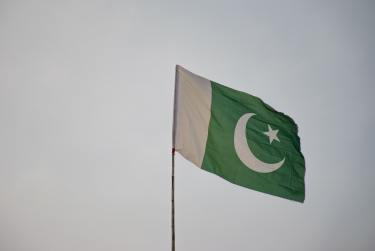
A 22-year-old Christian man in Pakistan has won a seven-month legal battle to have his faith correctly listed on his national identity card, in a case that highlights the systemic challenges faced by religious minorities in the country.
Civil Judge Anam Younis of Bahawalpur directed the National Database and Registration Authority (NADRA) on October 17 to issue Rahul Masih a new identity card that accurately records his name and Christian faith, according to his attorney, Lazar Allah Rakha.
Masih’s original identity card, issued in June 2022, had correctly stated his name and religion. However, when he applied for a duplicate card after losing it, NADRA issued a replacement that identified him as “Sufyan Ali” and listed his religion as Islam.
“Masih made repeated visits to the NADRA office, but his pleas to rectify the mistake were ignored,” Rakha told Christian Daily International–Morning Star News. With legal support from ADF International, Masih filed a petition seeking the court’s intervention.
During the proceedings, NADRA representatives claimed that Masih had voluntarily converted to Islam and registered himself as a Muslim, but they failed to provide any documentary evidence to support their claim. The judge ruled in Masih’s favour, noting that the defendants had not disproved his testimony and ordering the agency to issue a corrected card.
Masih presented his baptism and school certificates as proof of his Christian identity and brought his parents to testify. “I’ve never been a Muslim and have always practiced Christianity,” he said. “I was shocked when NADRA officials told me that I had changed my name and religion myself. Despite my repeated explanations that this was false, they refused to fix their mistake.”
In Pakistan, authorities typically refuse requests from individuals registered as Muslims who seek to change their religious identity. Such cases are often denied unless clear clerical errors can be proven or when someone converts to Islam. Rakha said this policy leaves minorities vulnerable to serious social, legal and economic disadvantages — and in some cases, even security threats.
According to NADRA’s registration policy, any religious identification error due to illiteracy or administrative fault may be corrected internally, but in practice, conversions from Islam are treated with suspicion and often rejected. Applicants are commonly told to obtain a court order, a process that is lengthy, expensive and risky.
Rakha explained that incorrect registration has far-reaching implications. Individuals wrongly listed as Muslim lose access to minority employment and education quotas — including the 5 per cent allocation for minorities in federal and provincial government jobs and the 2 per cent quota in public universities in Punjab. Because eligibility is verified through NADRA’s database, candidates misidentified as Muslim are automatically disqualified from these opportunities.
The error also affects other aspects of civil life, including passports, family registration certificates, school records and marriage documentation. “Personal law in Pakistan is tied to religion,” Rakha said. “If someone’s religion is incorrectly listed, it can jeopardize their marriage validity, inheritance rights and even legal status in family disputes.”
He added that incorrect registration can also create security risks. “If a minority person is officially listed as Muslim, they may face suspicion or hostility if their true faith becomes known. For converts from Islam, attempting to correct their records can expose them to accusations of apostasy,” he said.
Although Pakistan has no formal law against changing religion, apostasy is considered a grave sin under Islamic jurisprudence and can be prosecuted under Section 295-A of the blasphemy laws, which carry penalties of up to two years in prison for “outraging religious feelings.”
Rakha urged the government to reform NADRA’s correction process to make it transparent, safe and affordable, and to introduce legal safeguards protecting those seeking to amend their religious identity without fear of persecution. “Addressing this issue is essential to ensuring equal citizenship and faith freedom in Pakistan,” he said.
Adapted from CDI - Morning Star News.




